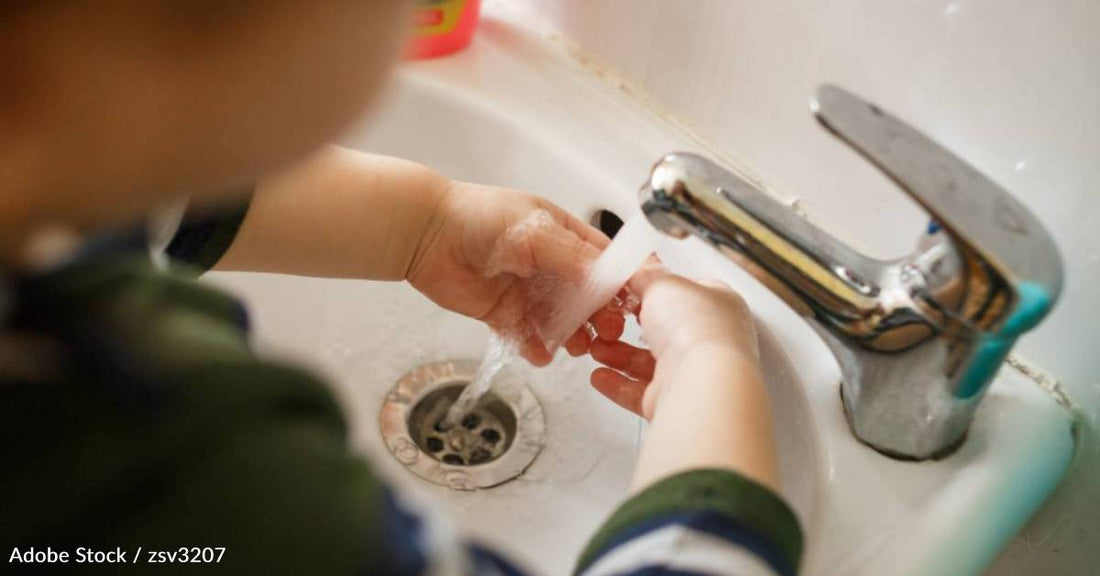Six Strategies to Help Autistic Children Overcome Fecal Smearing
Guest Contributor
Guest post by Ava Wadaby.
Toilet training is challenging for any parent but especially for parents of children with autism. These parents might have to deal with pica (children eating feces), anal poking, and fecal smearing. Fecal smearing occurs when a child smears their poop on themselves or all over their room. It is one of the most common fecal behaviors in autistic children, although there is little research to explain it.
Fecal smearing, also known as scatolia, can be frightening when it is not understood. When a parent notices their child fecal smearing, their first concern is probably for their physical and psychological health.
“For parents who struggle with their child fecal smearing, it can be scary and overwhelming, frustrating, and confusing. There are few resources available and research has not yet shown a consistent one-size-fits-all approach that will help every child,” says occupational therapist Kelly Beins, BHSc, OTR/L. “While toilet training is a common challenge among parents of children with autism, few people discuss the smearing of feces or bowel problems.”
To eliminate fecal smearing behavior, it is crucial to first understand why it's occurring with the child.
What causes a child to smear feces?
Medical problems
Scatolia may occur if a child is constipated, has abdominal pain or has diarrhea. If you can relieve their gastrointestinal discomfort, you will make a positive step towards the reduction and elimination of scatolia.
Sensory challenges
Sensory challenges can contribute to fecal smearing. Kids who experience under-responsivity require more input to smell or feel something. They may like the feel of poop in their hands or get more sensory input from smelling it when it's closer. Over-responsive children and those that have poor interoception may also start to smear feces.
Poor interoception is when a child cannot feel internal sensations, such as when to go to the bathroom. They may accidentally poop in bed and start playing with it. Hypersensitive children may avoid going to the toilet because the toilet flushing or the feel of toilet paper bothers them.
Behavioral factors
Children may smear feces as a way to get attention or communicate something. People in the home may accidentally encourage the behavior, for instance, by laughing, and they will keep doing it. The child may use scatolia to express anxiety or communicate discomforts.
How to help a child overcome scatolia
Whether the smearing of feces is caused by behavioral factors, medical, or sensory challenges, it is crucial to help a child stop doing it for their own health and wellbeing. Harshly reprimanding a child is not generally thought to help in overcoming scatolia. Here are some more positive strategies to help children with this challenge.
Make notes
It is important to keep note of a child's scatolia. Keep a record of when the behavior happens, what is happening around the child, and what happens afterward. That will help you find the trigger for it and assist you in resolving it.
Talk to a medical professional
Talk to the child's pediatrician, nurse, or a nutritionist. They can potentially help you eliminate medical causes of fecal smearing. A nutritionist can also help you refine your child's diet to help them have better bowel movements.
Develop a behavior plan
You can look for a behavior expert such as a psychologist, occupational therapist, or behavioral therapist to help you identify the triggers of scatolia. You can then use the information you gain to develop a schedule for the child that will eliminate smearing feces. When an incident occurs, remain neutral but always engage in positive reinforcement when they use the toilet or go to bed without smearing poop.
Social stories and visual reminders
Take time to read books and create social stories with pictures of the child using the toilet properly. Place pictures around the house to remind your child and motivate them to engage in desirable toileting behavior.
Adaptive clothing
Get pajamas and clothes that make it difficult for the child to reach into their diaper. There are special pajamas with fastenings which will ensure that the child cannot reach into their underwear and smear the poop around. The clothes should help minimize, and in the long run, eliminate fecal smearing.
Address sensory needs
Make the child's bedroom and playroom sensory-friendly. You could buy them a noise machine, squishy toys to offer tactile stimulation, and provide a variety of messy play opportunities. Perhaps get your child Play-Doh, finger paint, water beads, or even shaving cream to play with.
Children can stop fecal smearing
Fecal smearing affects many autistic children, but it is something you can help them eliminate. By taking time to understand the possible cause of scatolia and talking to specialists, you can help children stop smearing poop using the above strategies.
Did you enjoy this article? Learn more from Autism Parenting Magazine, the leading international publication for autism families.






